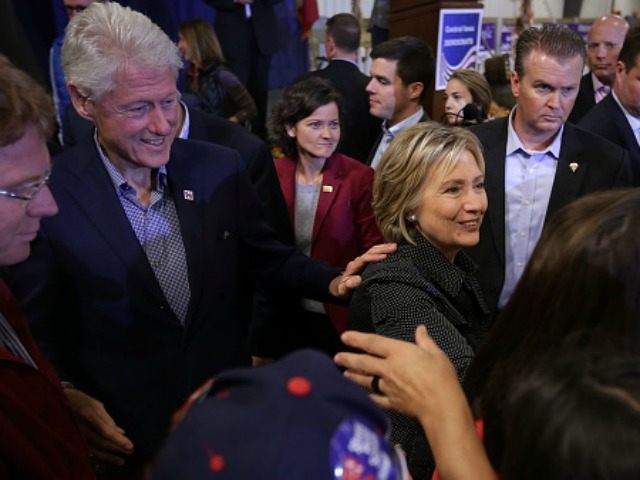In the waning months of Bill Clinton’s presidency he sat down with his old friend, historian Taylor Branch, and explained his plans once he left the Oval Office.
“[Clinton] said I’m coming off two terms, a two-term presidency with high public ratings and rating still rising and contacts all over the world,” says Branch. He said, ‘I know where to find this money, I think I can find it so that’s what I want to do.’”
Contrary to the image painted of the Clintons by both their friends and enemies, they have always been less about ideas and beliefs than they have been about money. One need look no further than their record: the collection of an astonishing $3 billion in contributions and donations over the course of their public lives. No one comes even close.
Dig into those numbers and you see the predictable sources of money that rise to the top: Wall Street and investment banks, lawyers and law firms.
But the story of the Clintons and their pursuit of money is even more interesting when we discover how it has evolved over time. The source of their money has changed depending on the positions of power they have held. (Early donors from Arkansas, like Walmart founder Sam Walton, gave early but stopped after $6,000.)
The Clintons story of money is not about a band of faithful supporters from the Arkansas days staying with them over of the course of forty years, but of the Clintons adapting to give a broadening base of donors precisely what they want.
Pushing boundaries has been part of the Clinton story from the beginning.
Whether it is Bill’s private sexual activities or Hillary’s quick trades on cattle futures, the Clintons have always expanded their appetites to conform beyond what many would consider conventional or acceptable. When Bill Clinton was up for reelection in 1996, the Clintons pushed to expand the boundaries of their financial empire by aggressively courting and recruiting foreign donors to give to his presidential campaign.
Charlie Trie and others wrapped in the scandal might seem like low rent fundraisers, but they represented a revolution in political fundraising. For the Clintons it was not enough to simply collect political contributions from American corporations, lawyers, and labor unions. There was a whole world of money to be raised beyond American borders. Why not go for it and collect checks from Asia?
The 1996 Bill Clinton fundraising scandal included everything from retired Chinese Generals to Chinese restaurateurs in Arkansas. Despite having to return large sums of money and the successful indictment and prosecution of some of those involved in the scandal, Clinton and his fundraising network survived. That survival laid the groundwork for what would become the massive infusion of foreign money into the Clinton Foundation and Library.
The big money for the Clintons today flows into the Clinton Foundation or into their pockets in the form of speaking fees. The big money is not so much from large American corporations or law firms but from foreign oligarchs or those with a strong interest in international affairs.
With all the controversy surrounding the Clinton Foundation and the Clinton Global Initiative, it is still hard to grasp how we have reached the point where a sitting Secretary of State (Hillary Clinton), who was making serious national security decisions on matters around the world, had a family cashing large multimillion dollar checks from foreign companies and countries who had matters sitting on her desk. It’s a situation unprecedented in American history. But it’s likely to be repeated again, especially if the Clintons pay no penalty for their foreign money cash grab.
The Clintons do indeed know where to find the money. The question is where this appetite will lead them, and where, in turn, it may lead us.

COMMENTS
Please let us know if you're having issues with commenting.